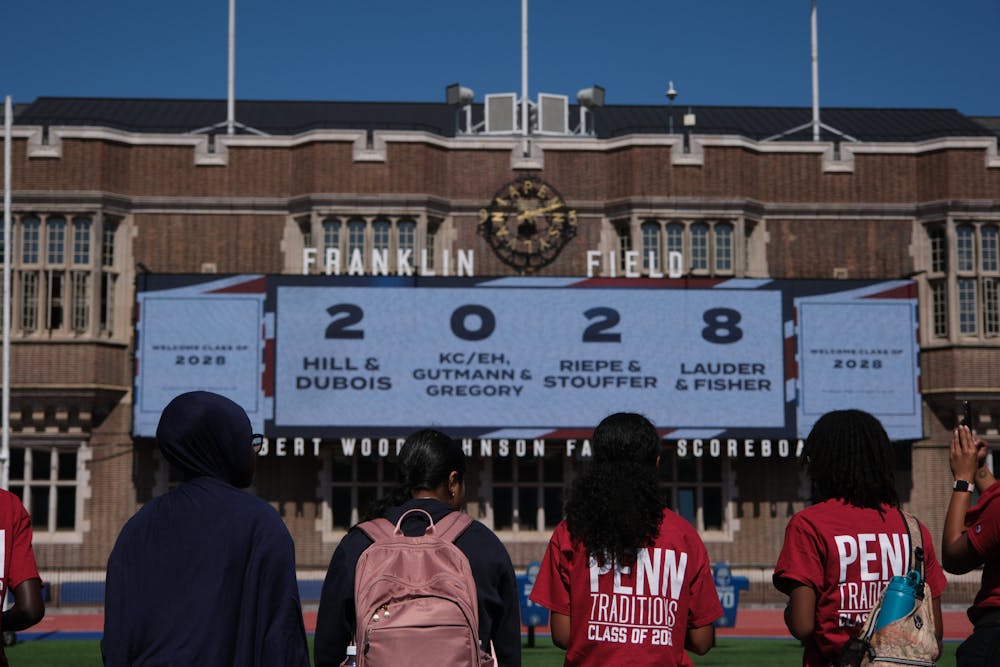
There are a few first-year characters on Locust Walk who stop every 200 feet to greet a new face and make lackluster dining hall and coffee chat plans within the week. Although these plans almost never come to fruition, we may find ourselves envious of those who seem to be making friends so quickly. But those who appear to be expertly navigating the social sphere of a new city, new environment, and new community, are deceiving.
Within our first month, our school culture has revealed that every action we take is seen as a means to an end. We are constantly thinking about our classes, clubs, degrees, and friendships as ways for career advancement, rather than social and intellectual enrichment. While networking is an important part of the college experience, it is one that is built over four years, not four weeks. Living in the present and doing things for the sake of doing them is what permits time for self-reflection and discovery, the most important components of remaining grounded in a new environment.
Unless you had the rare opportunity to surround yourself with the Penn undergraduate community prior to matriculation, there is a baseline level of struggle that comes with the adaptation to our new environment. It would be a perpetuation of Penn Face if we operated on the assumption that every first year is consistently making new, meaningful friendships within their first month, because they are not. Feeling the pressure to make an extensive catalog of new friends to hit the dining hall with is tempting, however, it is also important to remember the benefits of forming quality over quantity relationships early on.
There is a conditional sense of anxiety that is essential to the first-year experience. While we are experiencing a change in scenery, newfound freedom, and introduction into a (hopefully) more like-minded community, we are also beginning at the bottom of the food chain. We spent four whole years building relationships over the course of high school; they were not formed in a day. The pressure to already have your social life “figured out” at our socially and academically demanding institution will become too demanding if it gets out of hand. It is okay, even good, to start over: having these awkward and late night conversations are the formative experiences that will teach us who we are.
It is through these new conversations that we figure out our preferences, what we want to do, and who we want to be. We are no longer bound by our hometown expectations and are met with a newfound freedom that is entirely overwhelming in ways that we may not realize yet. The vulnerability we are all facing is why we need quality friends — when we inevitably get the first-year flu or need a partner for Econ Scream, the catalog of Locust Walk acquaintances aren’t going to pick up your panicked phone call.
The difficulty many students face in being alone points to the fact that they aren’t comfortable with themselves yet — but that is what your first year is for. We learn the most about who we are when we are confronted with new situations and the intensity of being with ourselves. Learning who we are when nobody's watching is essential to self-actualization, a process that is hindered when our pre-professional culture pressures us into thinking we constantly need to be “networking.” Coffee chats are fine, but it is important to remember that making meaningful friendships is networking in itself.
We are always told “those friends from NSO won’t last.” While this may be partially true — there is no lack of upperclassmen confirming this sentiment — it is also important to remember relationships take time to build. I am not telling you to avoid going out and meeting new friends everyday; I am simply suggesting that maybe instead of a new dining hall partner every night, you see the same one again after your initial conversation. It is okay to start over, and being a first year is something we all have to relearn before we can truly begin our Penn experience.
TIYYA GEIGER is a College first year studying philosophy, politics, and economics from Lancaster, Pa. Her email address is tiyyag@sas.upenn.edu.
The Daily Pennsylvanian is an independent, student-run newspaper. Please consider making a donation to support the coverage that shapes the University. Your generosity ensures a future of strong journalism at Penn.
Donate




